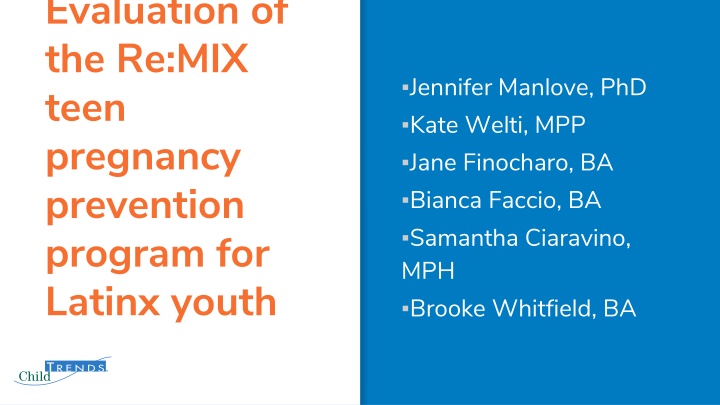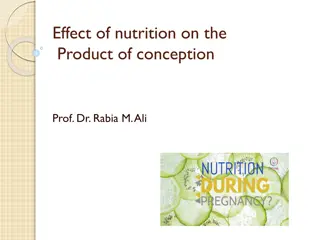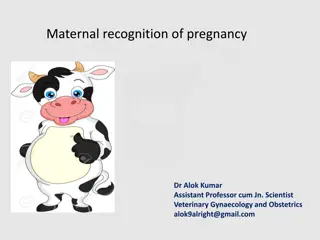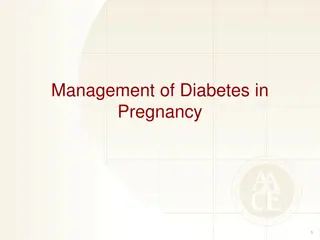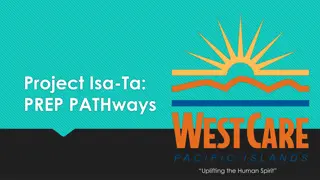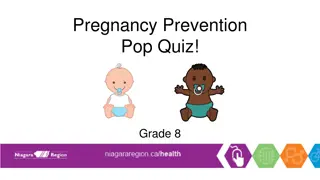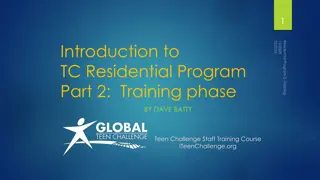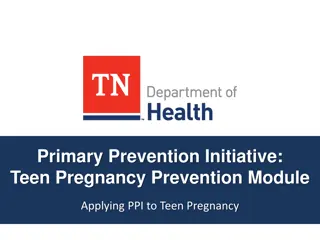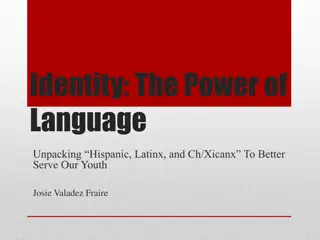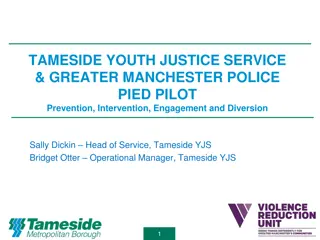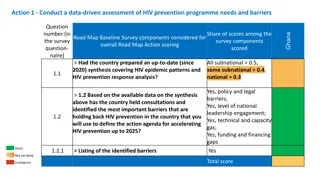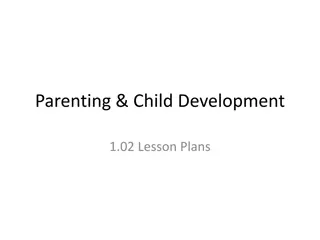Evaluation of Re:MIX Teen Pregnancy Prevention Program for Latinx Youth
Re:MIX is a comprehensive school-based sex education program aimed at educating and empowering Latinx adolescents to reduce rates of unplanned pregnancy and STIs. The program consists of ten sessions covering various topics such as gender norms, healthy relationships, communication, consent, contraception, STIs, and future goals. Evaluation conducted in Texas with primarily Latino students showed positive outcomes in equipping participants with essential knowledge and skills for making informed sexual health decisions.
Download Presentation

Please find below an Image/Link to download the presentation.
The content on the website is provided AS IS for your information and personal use only. It may not be sold, licensed, or shared on other websites without obtaining consent from the author.If you encounter any issues during the download, it is possible that the publisher has removed the file from their server.
You are allowed to download the files provided on this website for personal or commercial use, subject to the condition that they are used lawfully. All files are the property of their respective owners.
The content on the website is provided AS IS for your information and personal use only. It may not be sold, licensed, or shared on other websites without obtaining consent from the author.
E N D
Presentation Transcript
Evaluation of the Re:MIX teen pregnancy prevention program for Latinx youth Jennifer Manlove, PhD Kate Welti, MPP Jane Finocharo, BA Bianca Faccio, BA Samantha Ciaravino, MPH Brooke Whitfield, BA
oComprehensive and inclusive school-based sex education program. oAims to educate and empower adolescents and ultimately reduce rates of unplanned pregnancy and STIs. Also aims to promote equitable gender attitudes. oTen 55-minute sessions, implemented once a week. oYoung parent peer educator model - the curriculum is facilitated by young parents paired with professional health educators. oIncorporates storytelling, technology, and game- based tools. The Re:MIX progra m
SESSION 1 - Introducing Re:MIX Introduces the curriculum and the storytelling approach. SESSION 2 - Getting the Gender Message Discusses, questions, and redefines gender norms collectively. SESSION 3 - Understanding Relationships Builds participants skills to identify healthy and unhealthy relationships. The Re:MIX curriculu m sessions SESSION 4 - That s What I m Talking About! Explores strategies for youth to communicate effectively and safely. SESSION 5 - Consent and Setting Limits Defines individual sexual rights and responsibilities, while youth practice communicating consent. SESSION 6 - Becoming an Adult Explains adolescent development and the reproductive process. SESSION 7 - Condoms and Contraception Teaches youth about accessible and effective contraceptive methods. SESSION 8 - The Final Stage Discusses facts about sexually transmitted infections and how to make safe sexual health decisions. SESSION 9 - A Baby Today Explains the financial implications of childrearing through games and storytelling. SESSION 10 - Commitment to the Future Encourages youth to envision their ideal futures and identify goals that will empower them to lead healthy lives.
Evaluation Design Conducted in three schools in Texas with primarily Latino students. Implemented with students in 8th- 10thgrade. Participants completed a baseline survey, a posttest survey at the end of the program, and a long- term follow-up survey approximately 12 months after the program ended.
Race/ethnicity 71% Hispanic/Latinx 15% non-Hispanic white 7% non-Hispanic black 7% non-Hispanic other Language spoken at home 41% speak Spanish 53% speak English Participant Characteristic s Parental education 36% have mothers with less than a high school education 34% have fathers with less than a high school education Children of teen parents 29% are children of a teen mother 19% are children of a teen father
90% of students participated in at least 8 of the 10 sessions 29% of classes were observed 4.1 average quality rating (out of 5) Performanc e Measures Implementation Findings 98% said they learned something from Re:MIX 78% would recommend Re:MIX 89% liked health educators 90% liked young parent peer educators Student Experience
Impact Findings We found short-term mediating impacts on intentions to use effective contraception, reproductive health knowledge, and self- efficacy. All findings were sustained at long-term follow- up, except for contraception intentions. There were no significant impacts on sexual experience or unprotected sex.
Post-test Impact Findings: Intentions Among Re:MIX students, 61% reported on the post-test that they would definitely use hormonal or long-acting contraception if they have sex in the next year, compared to 52% of control group students. This finding was not sustained at long-term follow-up.
Program impacts on students' reproductive health knowledge at post-test 73% 52% Post-test Impact Findings: Knowledge Re:MIX 61% Control 43% 30% Contraceptive efficacy 13% 0% 10% 20% Percent of questions answered correctly 30% 40% 50% 60% 70% 80% Re:MIX students provided a higher percentage of correct answers to questions about condoms, STI prevention, and contraceptive efficacy. These impacts were sustained at long-term follow-up.
Post-test Impact Findings: Self-Efficacy Re:MIX students were more likely than control group students to report that they knew where to go to get contraceptives and that they were confident in their ability to ask for and give consent. These impacts were sustained at long-term follow-up.
Summary and Discussion Although we did not find impacts on behavioral outcomes, our findings related to self- efficacy, knowledge, and intentions suggest Re:MIX has promise with Latinx students. Students rated both young parent educators and adult health educators highly, highlighting benefits of the young parent peer educator model. We were not powered to detect program impacts on unprotected sex because very few students reported being sexually active. Our sample was young (average age 14) and sexually inexperienced at baseline. Even at long-term follow-up, very few students were sexually active. Future studies should consider implementing Re:MIX with older students and using longer follow-up time periods to better assess behavioral impacts.
Acknowledgements We would like to thank Monica Armendariz, Rebecca Shirsat, Jenifer DeAtley, Melissa Pintor Carnagey, and Tracy Parks of EngenderHealth for their work developing and implementing Re:MIX. This presentation was made possible by grant number TP2AH000033-01-02 from the Office of Population Affairs (formerly the Office of Adolescent Health), US Department of Health and Human Services (HHS). Its contents are solely the responsibility of the authors and do not necessarily represent the official views of the Office of Population Affairs or HHS.
